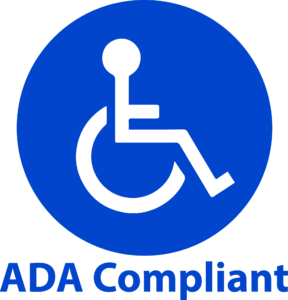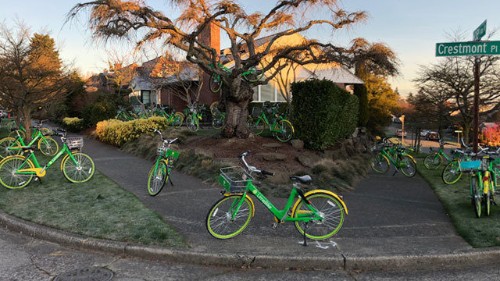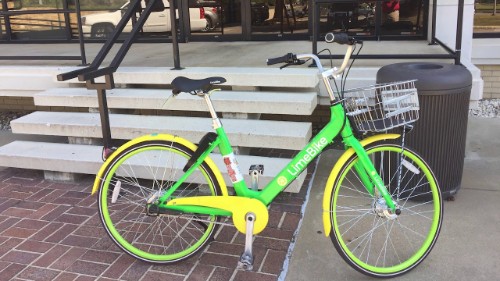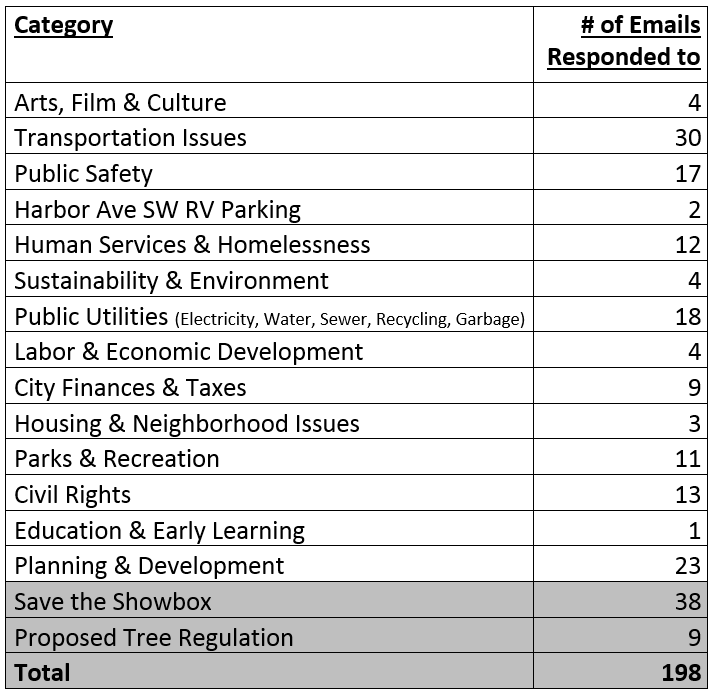Housing for Tenants with Disabilities; Delridge Multimodal Corridor; One Center City Bike Network; Bike Share Program & Fees; July Constituent Email Report
Amending the Open Housing Ordinance for Tenants with Disabilities
 On Monday July 30, 2018 the Seattle City Council passed CB 119309 amending the Open Housing Ordinance in Chapter 14.08 of the Seattle Municipal Code to increase the types of entities with an obligation to provide reasonable accommodations to tenants with disabilities.
On Monday July 30, 2018 the Seattle City Council passed CB 119309 amending the Open Housing Ordinance in Chapter 14.08 of the Seattle Municipal Code to increase the types of entities with an obligation to provide reasonable accommodations to tenants with disabilities.
This issue was brought to my attention as an area needing new legislation after litigation and a decision from the Washington State Court where a Seattle Housing Authority (SHA) voucher recipient requested a change in her voucher from a studio apartment to one bedroom as a disability related accommodation. SHA refused to grant her request. As a result, she brought her complaint to the Seattle Office for Civil Rights (SOCR). Here’s what happened next:
- SOCR issued a finding that SHA had unlawfully denied the voucher recipient a reasonable accommodation and the case was sent to the City Attorney’s office for prosecution.
- The complaint was filed in the Hearing Examiner’s (HE) office and the HE also issued a finding that SHA unlawfully denied the accommodation request. SHA was then ordered to issue the voucher recipient a one-bedroom section 8 voucher and to pay her $1,500.
- SHA filed a writ of review at the county level, and moved to dismiss. The judge denied this motion and ultimately affirmed the HE’s decision.
- SHA then appealed to the Washington State Court of Appeals who reversed the lower court’s decision. The Washington Appeals court decided that based on a plain reading of the language in the Seattle Municipal Code and the statutory context supporting legislative intent to cover only the landlord-tenant relationship and did not apply to SHA in its role as a voucher administrator in those cases that SHA isn’t also the landlord.
In its ruling. the Washington Appeals court noted that “if the City wishes to extend the unfair practice requirement of SMC 14.08.040.D to include a requirement that Section 8 program administrators like SHA make reasonable accommodation….it can amend the SMC accordingly.” This legislation is in direct response to this case and amends the SMC accordingly.
This bill makes several changes to the Seattle Municipal Code including:
- Separating the obligation to provide reasonable accommodations from the obligation to provide reasonable modifications. These requirements were previously combined in the SMC and in separating the two it is intended to clarify the different responsibilities associated with each definition.
- Revising the party for permitting reasonable modifications from “landlord” to “person” and including a Section 8 or other subsidy program administrator in the definition of “person.”
- Defining “Section 8 or other subsidy program administrator” to explicitly ensure the SMC applies in the case of parties who are administrators but not landlords or a party such as SHA who is both landlord and administrator.
- Adding the term “prospective tenant” to any references to “tenant” to clarify that those applying for units and trying to obtain reasonable modifications are also protected. The Office for Civil Rights currently enforces this law protecting prospective tenants, and this bill will make that protection explicit.
The City Council approved three actions on at Monday’s Full Council meeting. Below is a brief summary of each one; I sponsored amendments focused on accountability and oversight.
During the 2018 budget process, the Council adopted a restriction on spending on the Delridge Multimodal Project. The proviso required Council approval for any SDOT spending beyond 10% design. I sponsored this spending restriction to begin use of the “stage-gating” process for large capital projects. Stage-gating requires regular check-ins with the Council on project status, funding, and public engagement before proceeding.
The Delridge Multimodal Corridor includes improvement to Delridge Avenue SW designed to increase transit speed and access, in coordination with King County’s planned transition to convert Bus 120 into the RapidRide H line in 2021.
The Sustainability and Transportation Committee received a presentation on the 10% design, and on Monday the Council voted to authorize additional spending, with a an amendment I sponsored.
My amendment requires a report to the Sustainability and Transportation Committee on 30% design, and Council approval, before spending additional funds. After getting input from community stakeholders, I included language in the amendment expressing an expectation the Council will receive from SDOT “a clear definition of the sidewalk and bicycle infrastructure improvements in the project scope,” and anticipating that the 30% design package “will reflect continued community engagement and input in the project development.”
This is a good example of how the enhanced oversight and accountability of the “stage-gating” process for construction projects should work, requiring regular check ins on progress and budget status. This also has the benefit of allowing residents and advocates to get their questions answered, and ensure Council hears their concerns early on.
Work on revising Capital Project Oversight began in 2016 with the North Precinct project cost increases. It started by first getting several departments to adopt common project terminology and defining approval phases, and quarterly updates to the Council to identify problems early. The enhanced quarterly reports will begin in the 3rd quarter of 2018.
One Center City/ Center City Bike Network
In anticipation of the “period of maximum constraint” Downtown, SDOT has partnered with King County Metro, Sound Transit, and the Downtown Seattle Association in the One Center City group. They have been meeting since 2016 to develop a series of planned actions to move people safely and efficiently through the center city from later this year until 2021, when light rail will arrive at Northgate, though a variety of planned actions.
In 2017, only 25% of trips Downtown were in single-occupancy vehicles. The period of maximum constraint will further stress the system, requiring alternative access to Downtown.
Downtown faces a high volume of projects: removal of the Alaskan Way Viaduct, opening of the SR 99 tunnel, reconstruction of Alaskan Way, all buses vacating the Downtown tunnel for expansion of light rail and expansion of the Washington State Convention Center. The Center City Streetcar project is currently on hold as the study ordered by the Mayor on construction and operations costs is completed.
Last week Mayor Durkan announced some of the early actions to implement the One Center City program. Transit enhancements planned before March 2019, when buses will exit the tunnel, include adding bus stops, adding ORCA car readers to allow for pre-paying on all routes, adding real-time arrival signs at all stops, and adding additional bus-only hours on 3rd Avenue. Signal enhancements are planned by March 2019 on 2nd and 4th Avenues, and transit pathway enhancements on 5th and 6th.
In June the Council adopted a resolution directing SDOT to provide quarterly reporting on: a. implementation of the One Center City program, b. the performance of the transportation system with these projects, and c. SDOT’s intended actions to manage for the subsequent quarter. This came after the Council majority unfortunately voted against a motion to not allow buses to leave the tunnel, as necessary for the Convention Center expansion, until September 2019. I supported not allowing buses to vacate the tunnel until September 2019 as one way to reduce the combined impacts of these projects on commuters.
The success of the One Center City program is especially important for West Seattle commuters. The removal of the Alaskan Way Viaduct will require buses that access Downtown on the Viaduct to find another way into Downtown until Alaskan Way is re-built. Eventually, buses will access Alaskan Way just before the entrance to the tunnel, then turn right onto Columbia onto 3rd Avenue. During the interim period, buses such as the C Line will access Downtown via 3rd Avenue at first, then later on 1st Avenue. More specifics will be available on this later when WSDOT announces their timeline for Viaduct removal.
I’ve also heard frustration from West Seattle bike commuters about the lack of access across Downtown. Without dedicated access through Downtown, reaching areas to the north of Downtown, such as employment centers in South Lake Union, is difficult, and often unsafe. The Downtown bike network is designed to help provide this kind of access to bike commuters.
One result of the One Center City program is that the implementation of the Center City Bike Network included in the Bicycle Master Plan has been delayed. SDOT announced that the 4th Avenue two-way protected bike lane, for example, has been delayed from 2018 until 2021. While noting this, the Council passed a resolution in support of a Center City bike network.
Among other amendments to this resolution, I proposed an amendment to this resolution to clarify the broader context of the One Center City program. Bike network implementation must not compromise the One Center City goal of moving people safely and efficiently through the Center City.
With all the planning to date, we can’t fully know what will happen when tolling begins on the tunnel next year. For this reason, some flexibility in implementation and scheduling of actions relate to the Downtown Bike Network may be necessary.
New Fees Passed to Support Free Floating Bike Share Program
After the demise of the ill-fated Pronto system that used fixed bicycle parking docks, Seattle became a focus for “free-floating” privately-funded bike share companies, since Seattle was one of only a few of the 50 biggest cities in the USA without a fixed dock system. Last year SDOT adopted a one-year pilot program under its existing street use authority, and charged the private-sector companies for use of city streets.
The use of these bikes has been much broader than the Pronto system, and the demographics of use have been reflective of the City’s population; a survey found that 36% of Latino and African-Americans have tried the system, along with 32% of Asian and White respondents.
The Council approved fees for use of public right of way for what SDOT terms “free-floating bike share” bicycles. The legislation sets a fee of $250,000 each for up to four companies to provide bike-share bicycles, a similar fee to that the City charges Car2Go and other car-share companies for use of city streets.
Given SDOT’s existing Street Use authority, the legislation by the Council is limited to setting fees. Some of the funds will be used to construct designated bike share parking. Bike parking will be developed in areas where car parking is currently prohibited, such as the 30-foot zone from stop signs. This is to ensure both that existing car parking isn’t removed and ensure that bike parking doesn’t block driver’s views. Some of the funds will be used for enforcement of parking regulations
While the system is providing better citywide access than Pronto, and operates with no public subsidy, I do have concerns about “free floating” bikes blocking sidewalks, with impacts to pedestrians, especially to disabled and elderly persons.
In this spirit, I sponsored amendments to the legislation that:
1) limit the fee approval to bicycles and adaptive cycles to accommodate disabled riders, so that approval will not include other devices such as electric scooters (other devices would have been allowed in the original version);
2) request quarterly updates from SDOT about installation of designated bike parking associated with the free-floating bike share program;
3) request SDOT provide a written plan for sidewalk management and safety, addressing the increasing use of fast-moving electric-motor devices on sidewalks by December 31, 2018. Former WSDOT Director MacDonald has emphasized the need for a clear plan to address pedestrian safety on sidewalks with the rise in electric devices such as electric skateboards, hoverboards and uniwheels.
I strongly believe we need much greater clarity about sidewalk safety before considering approval for other electronic devices.
Constituent correspondence is a very important task in my office. My staff and I spend time every day helping you improve our community, whether that’s through getting you help from a city department with our constituent case management services or giving you information about legislation that the Council is considering. The unshaded categories and numbers are problem-solving emails answered in July, what I refer to above as “case management services.” The shaded categories and numbers are emails answered in June related to policy or legislation the Council is considering.
Posted: August 3rd, 2018 under Councilmember Herbold, Housing, Libraries, Office of Police Accountability, Transportation
Tags: bicycles, Capital Project Oversight, Center City Bike Network, commuters, constituent e-mails, Delridge Multimodal Project, Downtown Seattle Association, free-floating bike share, King County Metro, One Center City, Open Housing Ordinance, Seattle Municipal Code, Seattle Office for Civil Rights, Sound Transit, transportation actions




